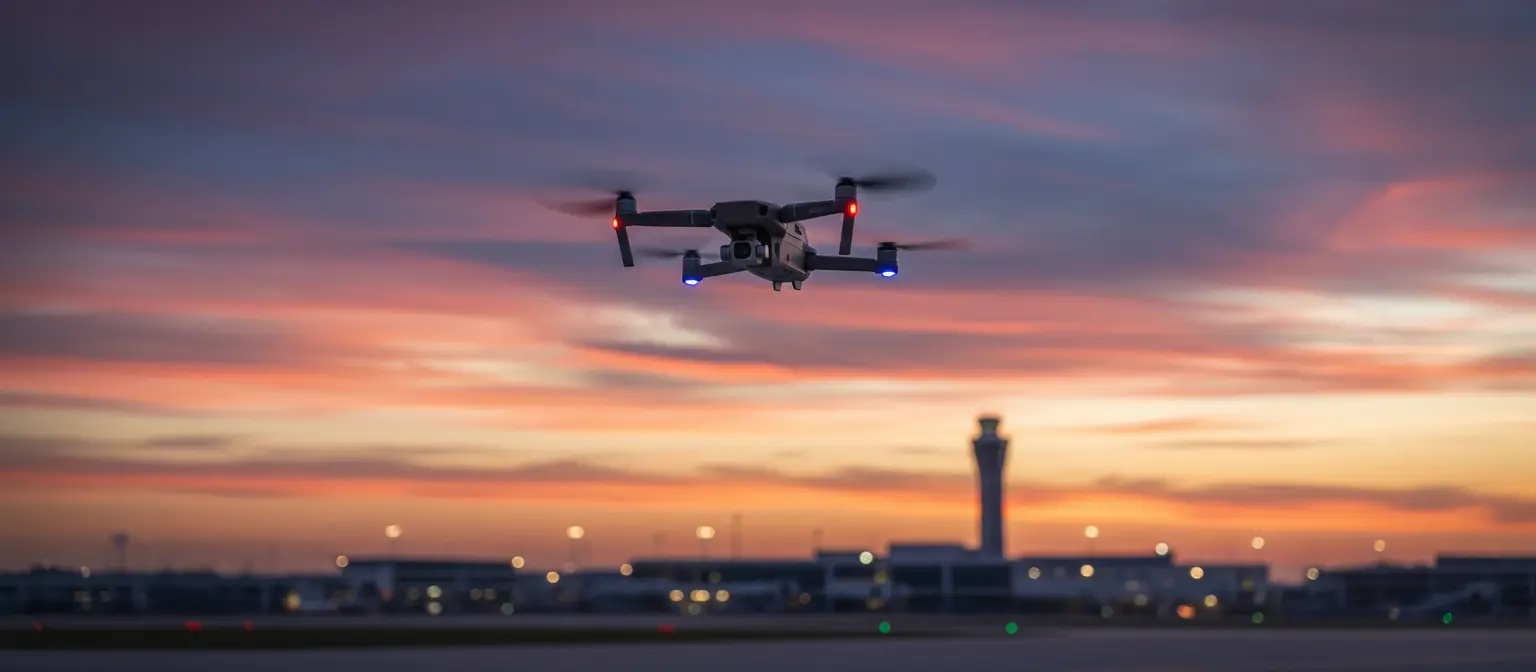Munich Airport was once celebrated for punctuality and efficiency, but on the night of October 3, 2025, it became the stage for a very modern crisis: drones in the night sky, sweeping the runway clean of flights and leaving passengers stranded, as security fears ripple across a jittery Europe.
Second Night of Drone Alarms: Chaos on the Runways
Munich Airport, Germany’s second largest and the most affected in the EU by this fresh wave of drone-related disruptions, was forced to shut down its operations for a second consecutive night. The signal for this extraordinary drama? Reports of drones—small, buzzing, and unseen—were enough to halt all flights. Officials acted preventively, suspending air operations from 21:30 on Friday “until further notice” in response to “unconfirmed drone sightings,” according to the airport.
The results were immediate and tangible—and not just for harried airport staff. A total of 6,500 travelers had their plans spectacularly upended. By the numbers:
- 69 flights either cancelled or rerouted
- 23 incoming flights redirected elsewhere
- 12 arrivals cancelled entirely
- 46 departures from Munich cancelled or delayed
Airport authorities held out hope for a resumption of flights at 5:00 the next day, but the disruption was already major. And this was just round two: during the initial closure from Thursday into Friday, more than 30 flights were lost and nearly 3,000 passengers ended up stranded under the airport’s care.
Security Fears and Political Tensions: Berlin’s Stance
The German response was swift and stentorian. Berlin condemned the « threat » posed by these drones to national security, with Interior Minister Alexander Dobrindt speaking out in the biggest national tabloid, Bild: “From now on, we must shoot down drones instead of waiting.”
That desire, however, crashes into current German law, which only allows the police, not the military, to shoot down drones—a somewhat frustrating reality for those itching to pull the trigger. Chancellor Friedrich Merz’s government has consequently scheduled a review of aeronautical security laws, aiming to give themselves more (figurative and literal) firepower.
The suspicion is not just a German affair. Several EU countries—including Poland and Romania—have pointed the finger at Russia, holding Moscow responsible for repeated drone overflights of sensitive sites. The EU is even mulling over what’s being called an « anti-drone wall » (which we can safely assume would not be made out of actual bricks and mortar, but you never know with Brussels).
Europe on High Alert: Patterns, Accusations, and Skepticism
Munich is just the latest flashpoint. Europe as a whole is nervously glancing skyward. Recent months have seen airports disrupted in:
- Denmark (Copenhagen Airport closed on the 22nd, with further flyovers of airports and a military base on the 25th)
- Norway
- Poland
- Romania and Estonia (where NATO intercepted three Russian fighter jets last month)
While some feel the pattern is clear, not everyone is buying the official story. As always in our modern infotainment era, conspiracy theories bubble up as fast as the drones themselves. Some skeptics suggest this could all be “false flag” operations by the very countries targeted, or see an attempt to influence public mood on issues from economic woes to immigration, and even the political rise of the far right.
One particularly witty commentator notes the almost mythic powers ascribed to Russian operatives: “They have agents everywhere, can roll drones out of a van anywhere, shut down airports, completely untraceable and undetectable, impossible to neutralize. Not a single one caught. We weren’t told they were so good, these Russians.”
Caution is advised, too, about the media and politicians veering from suspicion to certainty. The classic warning: cross-check your information—especially when the drums of war are beating, sometimes louder than the drones themselves.
Conclusion: A Standstill with No Easy Solution
As Munich Airport (and thousands of frustrated passengers clutching boarding passes and cold sandwiches) waits for calm to return, Europe is left grappling with a challenge that’s half-technological, half-political. Drones have become the ghosts of modern security, invisible but ever-present, inspiring both serious political maneuvers and flashes of public skepticism.
Whether the ultimate culprit is revealed or remains a shadowy figure, one thing is clear: vigilance is now as crucial in catching the facts as in tracking the drones. So, next time you’re at the airport and your flight’s delayed, don’t blame just the weather—look up. The new age of airspace trouble is coming from directions nobody can fully predict—or, apparently, shoot down.

John is a curious mind who loves to write about diverse topics. Passionate about sharing his thoughts and perspectives, he enjoys sparking conversations and encouraging discovery. For him, every subject is an invitation to discuss and learn.






